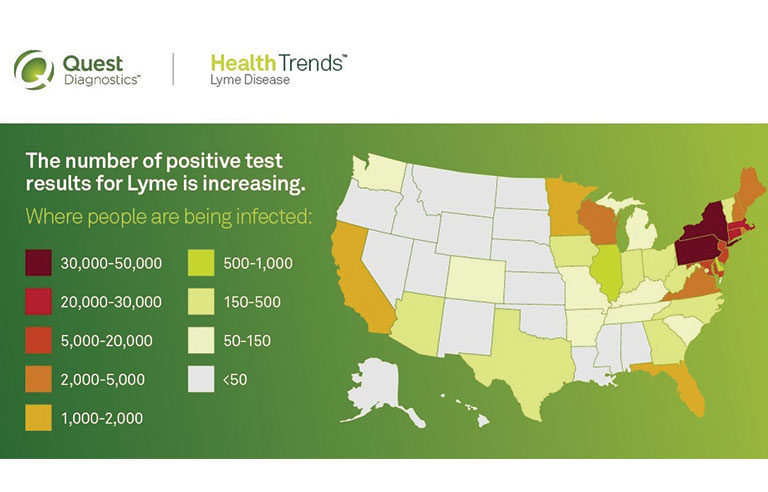Lyme disease risk on the rise as more states see spike in cases: study

Secaucus, NJ — Lyme disease is becoming more common outside the Northeast and more prevalent in the United States overall, a recent study by lab services provider Quest Diagnostics shows.
An analysis of more than 6 million lab tests conducted over the past seven years showed that positive tests for Lyme disease totaled about 35,000 in 2017. That’s up from fewer than 20,000 in 2013.
More than 60 percent of the 2017 positive test results were in the Northeast, with Pennsylvania leading all states with 10,001 cases. In California, however, cases surged 194.5 percent from 2015 to 2017, while cases in Florida jumped 77 percent over that same period. Notable increases also occurred in Arizona, Georgia, Ohio, Tennessee, Texas and Virginia.
“Lyme disease is a bigger risk to more people in the United States than ever before,” Harvey W. Kaufman, senior medical director for Quest Diagnostics and head of the company’s Health Trends research program, said in a July 30 press release. “Our data shows that positive results for Lyme are both increasing in number and occurring in geographic areas not historically associated with the disease. We hypothesize that these significant rates of increase may reinforce other research suggesting changing climate conditions that allow ticks to live longer and in more regions may factor into disease risk.”
Lyme disease, spread by bites from infected deer ticks, accounts for an estimated 329,000 illnesses in United States each year, according to the Centers for Disease Control and Prevention. Symptoms include a bull’s-eye rash, facial palsy, fever, chills, headache, fatigue, muscle and joint aches, and swollen lymph nodes.
“People treated with appropriate antibiotics in the early stages of Lyme disease usually recover rapidly and completely,” CDC states.
Post a comment to this article
Safety+Health welcomes comments that promote respectful dialogue. Please stay on topic. Comments that contain personal attacks, profanity or abusive language – or those aggressively promoting products or services – will be removed. We reserve the right to determine which comments violate our comment policy. (Anonymous comments are welcome; merely skip the “name” field in the comment box. An email address is required but will not be included with your comment.)

